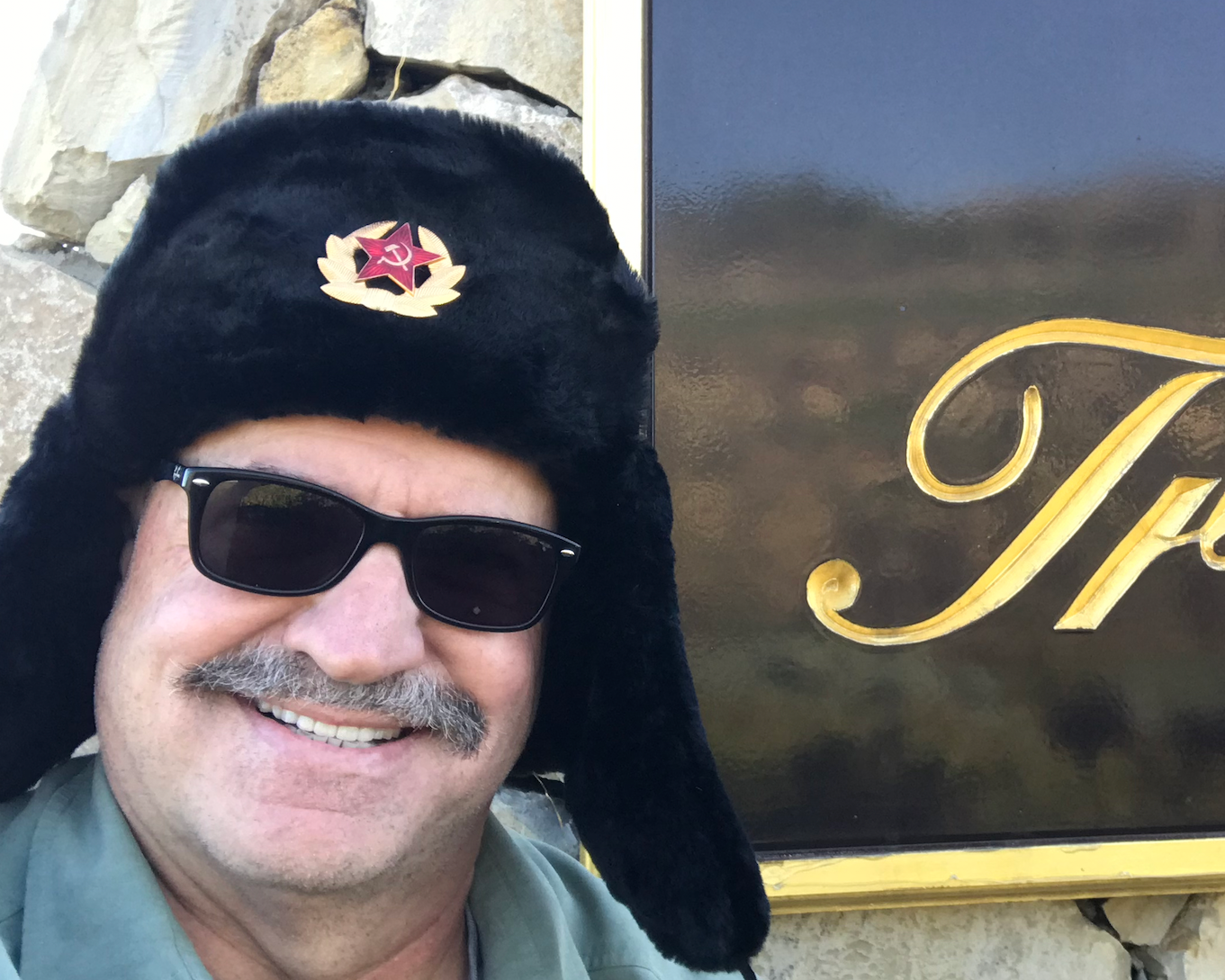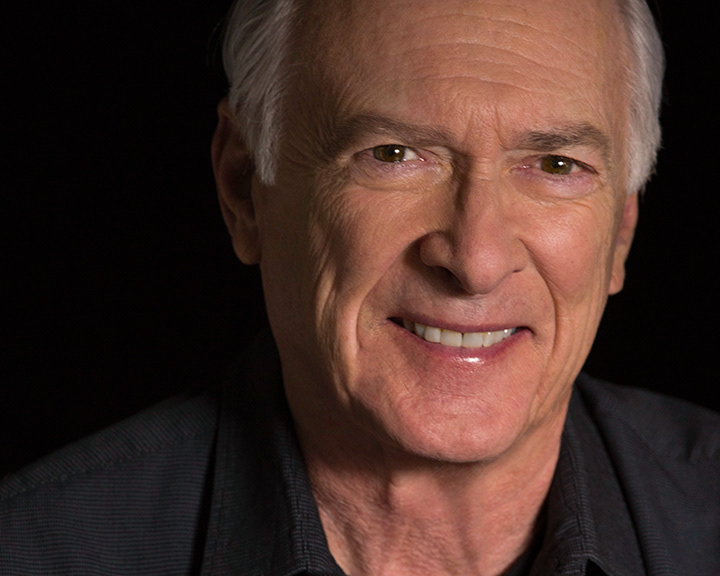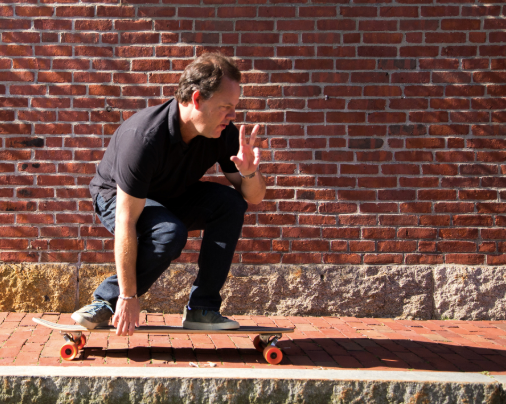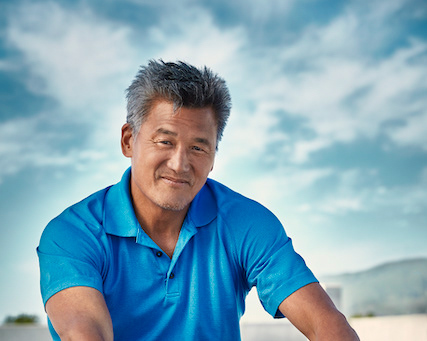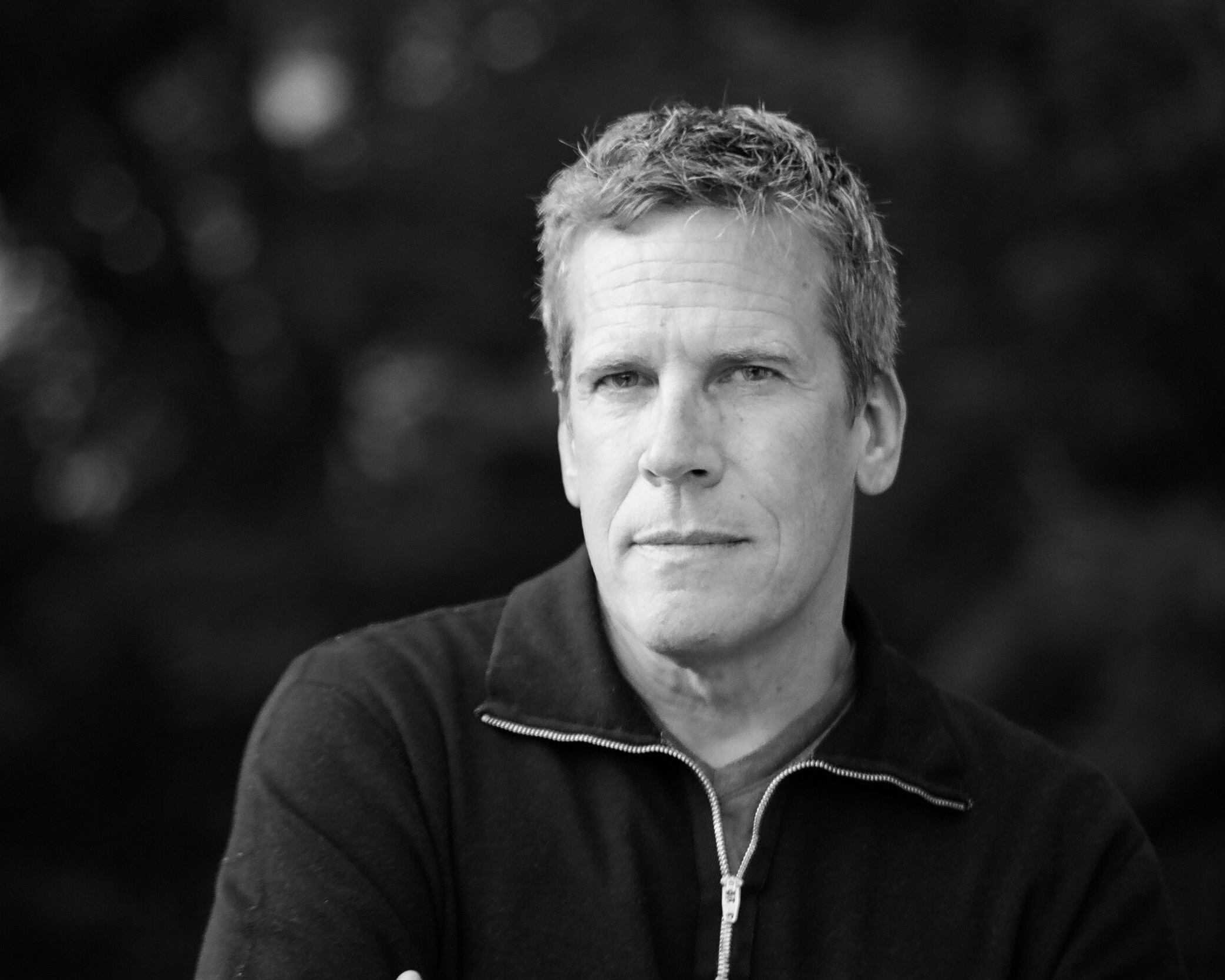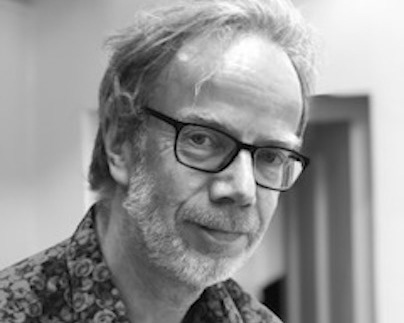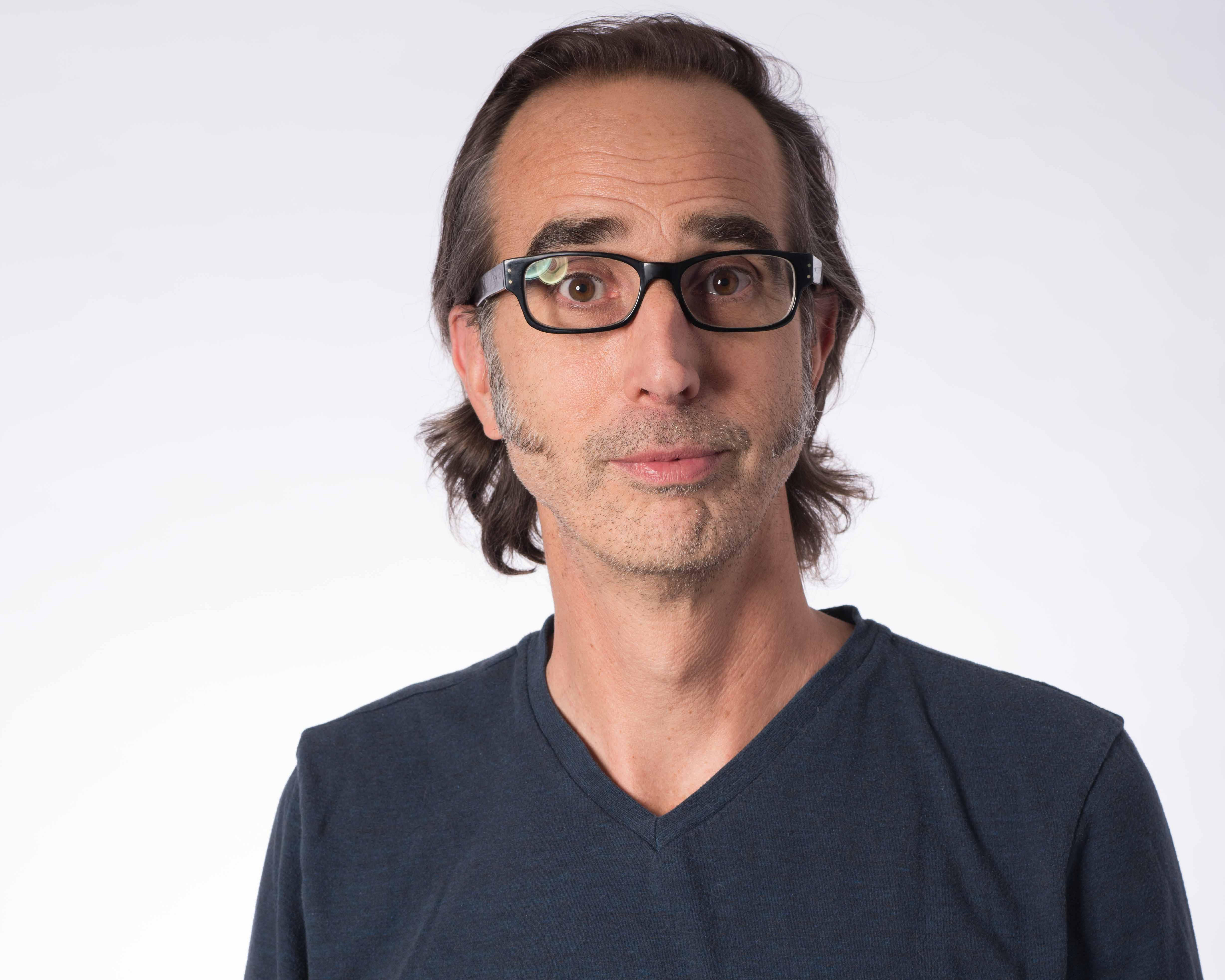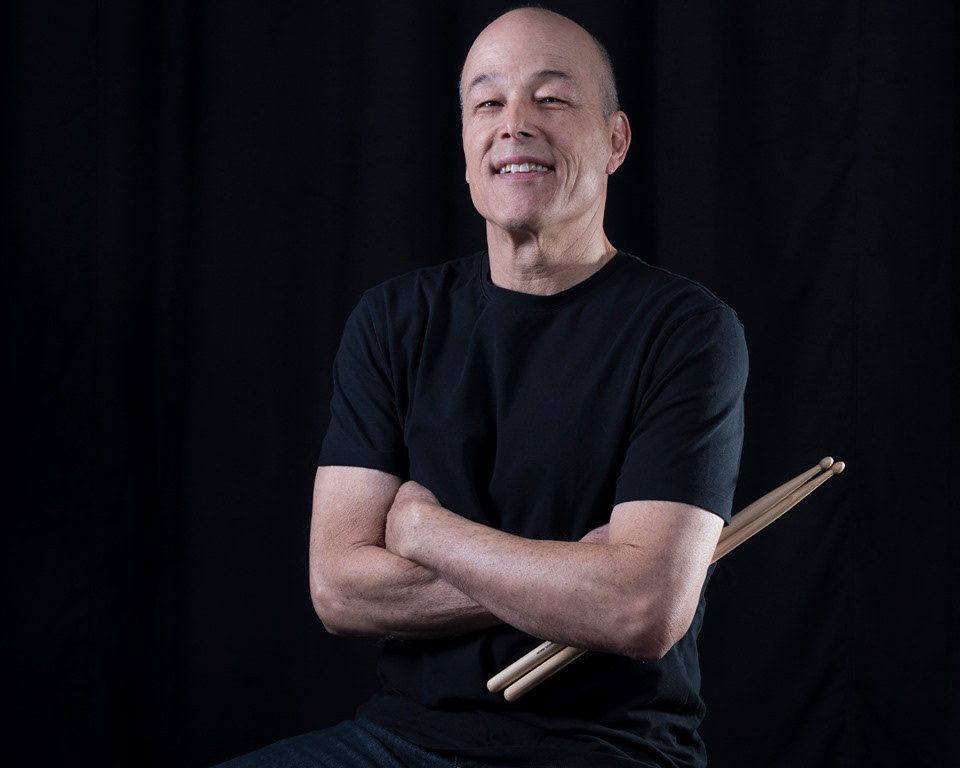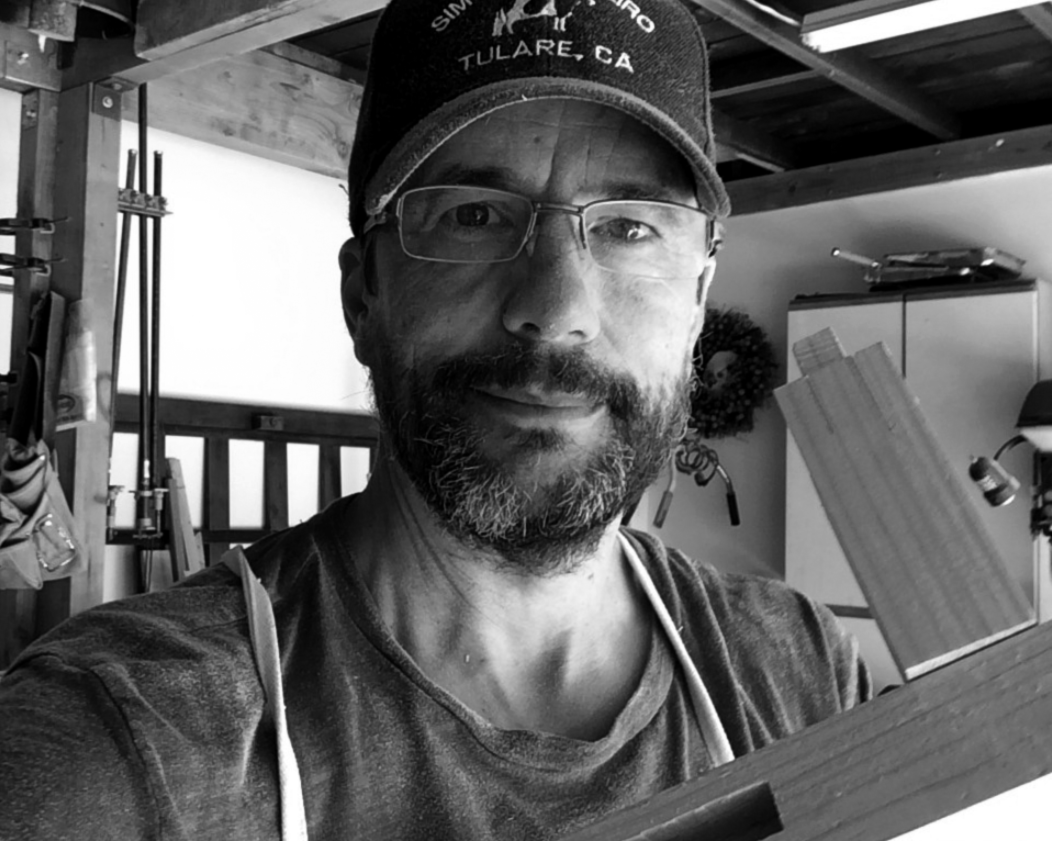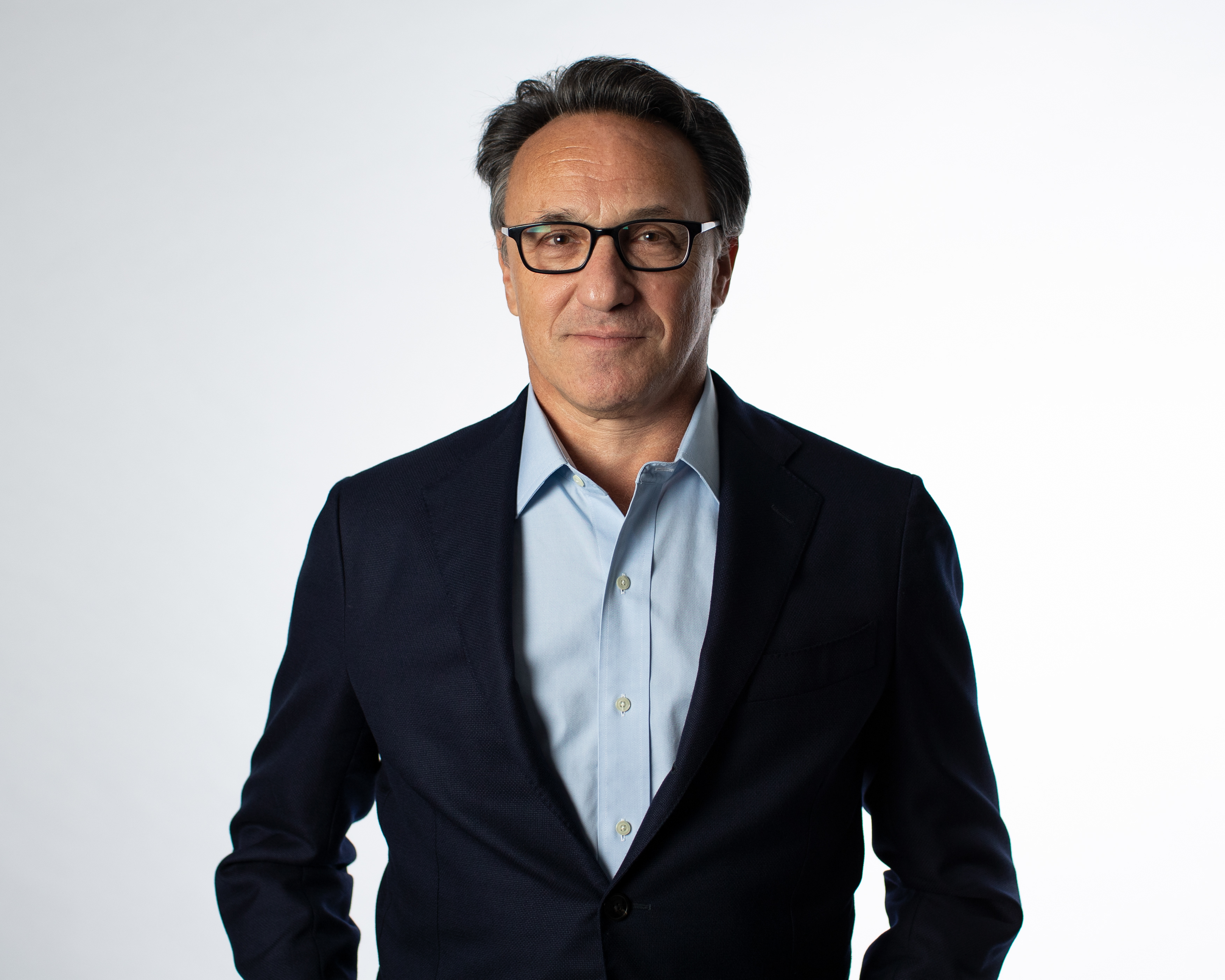What a thrill it is to peel back layer after layer…after layer of the onion that is Christian Bauman. We reached out thinking he was a mere creative rockstar of the healthcare world who happens to the only person we know with work represented in both the Smithsonian Institution and the Medical Advertising Hall of Fame. Then we learned that Christian has also published three books (all of which earned 5-star reviews on a number of sites (we checked) as well as a number of anthologies. And that he was once assigned to edit a book by the Dalai Lama. And that he has been a regular commentator for NPR’s All Things Considered as well as been featured on Fresh Air with Terry Gross, The New York Times, CNN, Elle, and Details, among others. Annnnnnd, that he also served in the US Army Waterborne from 1991-1995, including tours in the war zones of Somalia and Haiti. And, finally (though, we suspect there’s more), we learned he’s a guitarist and songwriter who has either opened for or played with a whole bunch of A-list musicians like John Gorka, Ani Difranco, Pete Seeger, Odetta, and Dar Williams. Not sure what’s next for this literal Rockstar, but we do know we’ll be watching.
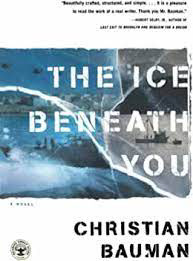
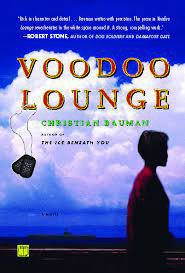
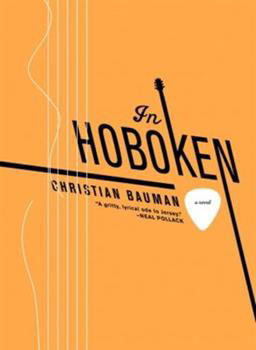
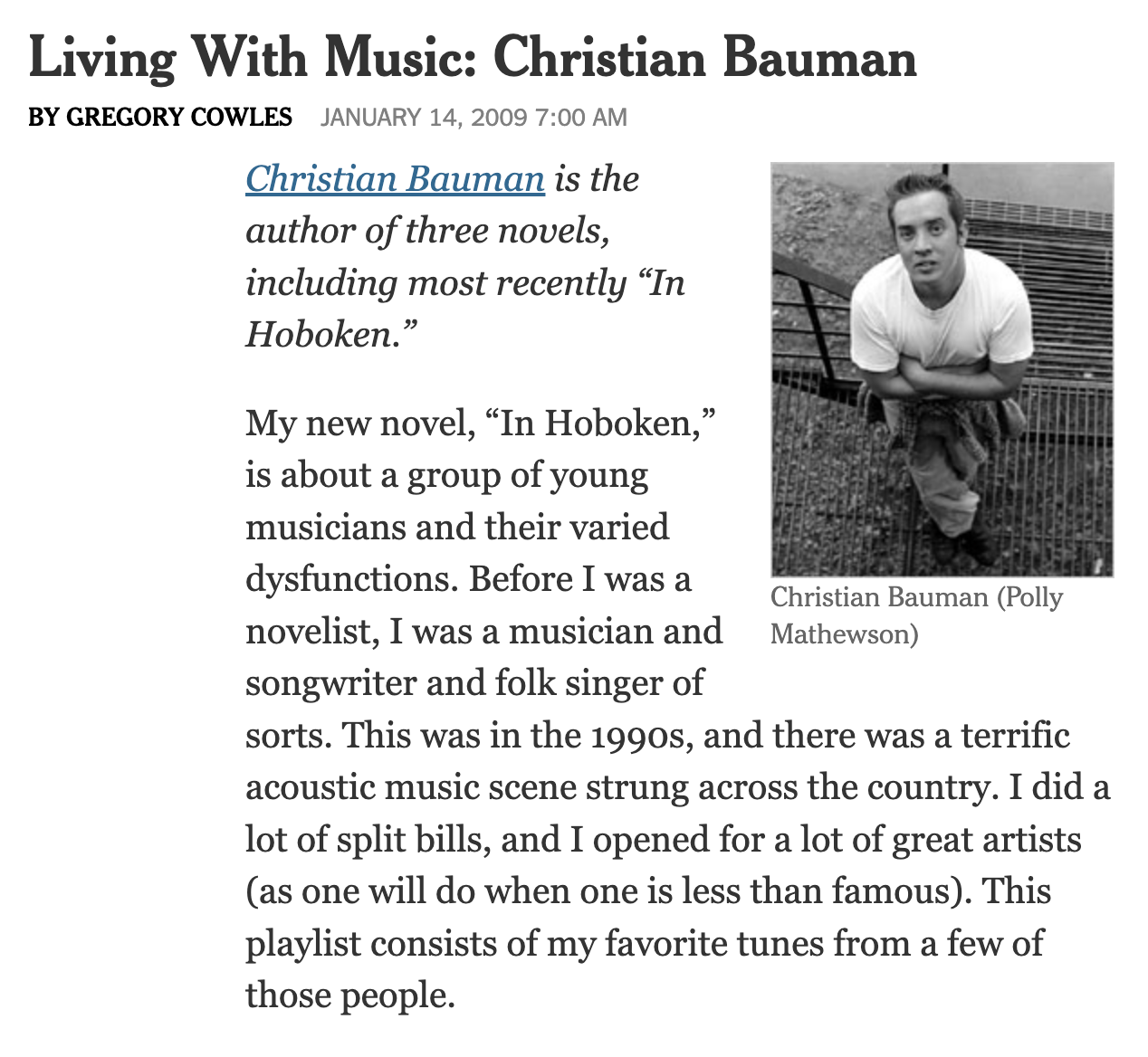
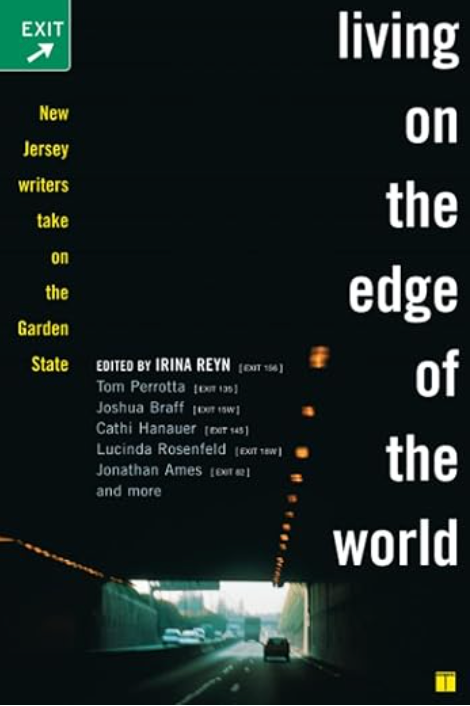
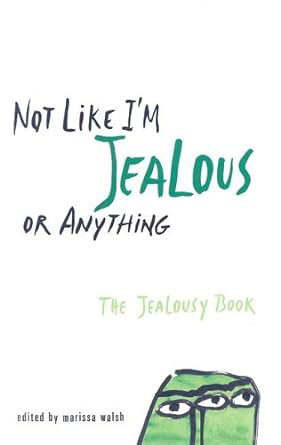
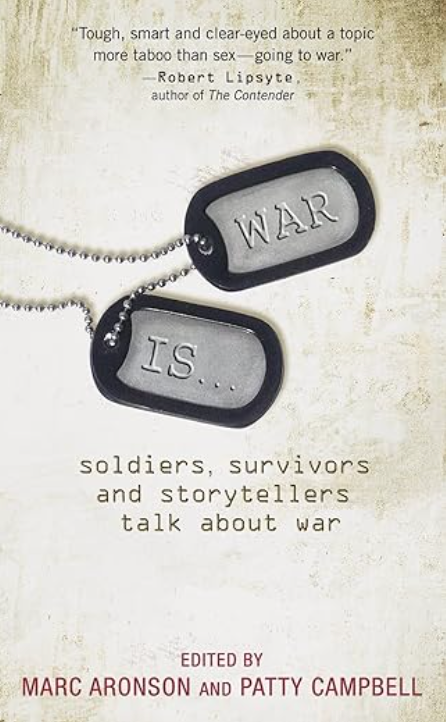
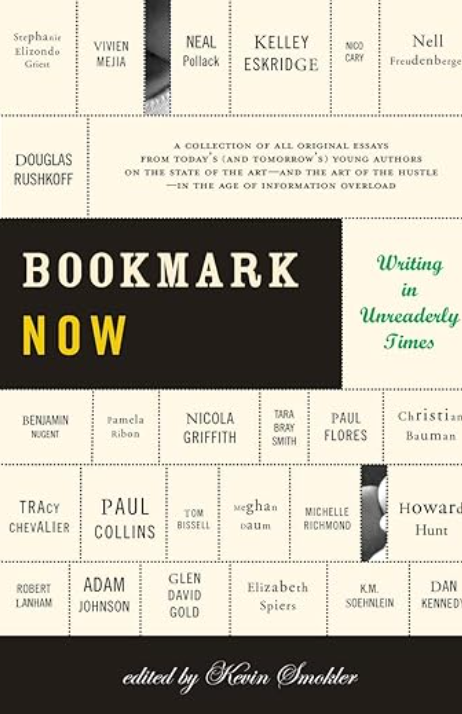
Is ageism in the industry something you thought about in your 30s? Your 40s?
My first job in advertising was as a proofreader in a direct-mail shop that laid off copywriters like clockwork at 3pm on Fridays. Two-thirds of the agency were basically oblivious and went about their business, but I couldn’t help but notice that at around 2:30 on Fridays all the old dudes would tidy up their already sparsely populated desks and kind of just sit there with a resigned look on their face, smoking a cigarette, waiting to see if their name would be called on the loudspeaker to come up front for a little chat.
Is ageism something that’s affected you? What are some of the challenges you faced as a person who was getting older in the business? Do tell.
Let me start with the opposite perspective: I was a soldier then a working musician then wrote my first book and I didn’t even start in advertising until I was 30, but after that my journey from proofreader to CCO was just shy of seven years. Which I now understand was fairly ridiculous. On top of it I had babyface. I’d been a teen father, so I thought I was used to people underestimating me and questioning my experience, but a few instances in the business world far surpassed.
Which is a long way of saying: as I’ve gotten older, the challenge I try to hold myself to is never underestimating anyone, or making any assumptions about their experience, intelligence, or talent based on their presumed age or appearance. Do I see that very thing happening around me in the industry? I sure do. It hasn’t turned on me overtly yet, but I feel it looming and then occasionally touching me in unexpected ways. We all know how this industry treats age, so that knowledge is always there. I remember when I was promoted to CCO I said to my wife, “My shelf life in this job is no more than five years.” Not because of me, per se, but because advertising always craves new. And I was only 37 when I said that. It’s a really bad, self-defeating dynamic this industry has. When it’s at its worst, advertising chews people up and spits them out. In the real world, Gen X is just coming into our own; in advertising, we’re already ancient.
“I remember when I was promoted to CCO I said to my wife, 'My shelf life in this job is no more than five years.' Not because of me, per se, but because advertising always craves new. And I was only 37 when I said that.”
Tell us about your own creative journey. What are your thoughts on where you are now, compared to your mindset when you were in the beginning of your career?
I never went to college, never had any thoughts on any kind of career in advertising or anything else. I stumbled into this because, as a novelist, I needed benefits, and teaching wasn’t an option because of my lack of degree. Once I started, though, I loved it. Early on I was recruited into the healthcare sector and very intentionally stayed here because I really enjoyed the strategic challenges specific to this world. My mindset now as a creative is much more intentional, which I think allows me to get to better work, faster. So, yeah, not to sound defensive, but there is no question that I am a better creative now because of the 20+ years of experience behind me.
Did the reality of the ad industry contribute to the decisions you made/the path you’ve taken?
Absolutely. I never would have ventured into the agency management side of things if I wasn’t so constantly worried about stability. Like many, I have two kids and a mortgage, and life as an advertising creative is volatile. So when offered an opportunity to take on a broader agency role, I jumped at it. That dynamic took me in directions that I never really wanted. It ended up being rewarding, but also distracting from my own artistic life. Like a lot of creatives, that outside artistic life fuels my advertising creative life, so one could argue that my concern for stability took me down a path that stunted my abilities as a creative. This is the kind of subtle, circular way that advertising as an industry can be self-defeating. If you want great creatives making great creative, give them a better shot at stability. No one does great work under threat.
“If you want great creatives making great creative, give them a better shot at stability. No one does great work under threat.”
What do you feel creative people over 50 can offer over someone 20 years their junior, things that are unappreciated, or just plain overlooked?
So much of what we learn over time in this industry is about better understanding what’s important and what is not, why something works or doesn’t, what seems great in a silo but has been done to death a million times, how clients think and how to speak their language without losing fluency in your own; we can accelerate that learning for those willing to absorb it.
That’s for any creative. There’s even more for creatives who have an outside creative life, as well. How to walk that balance between the two worlds, how to prioritize and compromise. There have been points in my career where I’ve been great at finding that balance, and other points where I essentially walked away from my outside creative life because of the pressures of the job. I understand better now how to avoid those black and white moments—rarely does it have to be just one or the other. Yes, you have to compromise, but you can find room in your life for both. My second novel, Voodoo Lounge, was largely written between 5am and 6:30am, Monday through Friday, over the course of two years, because I had a career and I had kids and that was the only time I had to write. So I did, even though I’m not a morning person, and that book is one of the best things I ever wrote. You can do it.
What is your advice to people who are nearing or over 40 in the ad industry?
This is important at every stage, but I think increasingly important the older you get: be self-aware of what you’re really good at and stay away from those things you’re not. Lean hard into your core talents and be invaluable in those areas. All that aside, though, I think the biggest and best lesson for all of us is: be more chill; don’t die at your desk; it’s just a job. This world can suck, organizational politics can suck, and sometimes even thoughtful navigating won’t keep you out of really shitty situations that you didn’t create but can mess up your career or happiness or both. Remind yourself of who you are and what your values are, and if you’re out of that zone, be brave and set a course to change it. That’s hard when the number of job opportunities is as narrow as it is at higher level and age, but for sure you don’t want to allow frustration turn you into someone you don’t like. (And, yeah, this is me speaking to myself here.)
“Be self-aware of what you’re really good at and stay away from those things you’re not. Lean hard into your core talents and be invaluable in those areas.”
How are you approaching the next 10 years? What does your future hold?
The Indigo Girls have a great line about “every five years I look back on my life and laugh.” My life has consistently made left turns every five to ten years, and I realize that the best turns happened unintentionally. I have no idea what my future holds, but as far as my professional life, I hope it involves good work with people I enjoy and respect.
On a personal level, I have a new book I finished about a year ago that’s done being fine-tuned and my agent is taking around now, and a completely different new novel that I’m having a great time writing. These are the things that make us happy and keep our brains sharp, right? That, and playing guitar with like-minded folks down in Cape May as many Sundays as I can make it. These are the things that make us smile and keep us sane.
What do you see as potential solutions for ageism in the industry? Any thoughts on possibly unionizing?
I’ve long had a Woody Guthrie obsession and had the good fortune of performing with the likes of Pete Seger and Odetta, so that probably tells you my stance on Unions. Would it work in advertising? I’m not sure. The only successful, sustained unionizing of creative industries we’ve seen so far is Hollywood, and specifically actors and writers. And not to be a cynic, but I suspect the success they’ve had has a lot do with how much more leverage they have over their industry.
“Clients come and go, agencies come and go, awards are (sorry) largely bullshit. The rewards to me are having found a way to use my creative talent to support my family, and then paying it forward as dramatically as I can...”
What are some positive things you’ve experienced as you’ve grown older in the business?
This is going to sound Hallmark, but I assure you it’s 100% true: the greatest feeling I’ve had over time is having a positive effect on the lives of people I love and respect, watching them grow and thrive. At this point in my career I often feel more like a teacher than anything, and I actually love that. I’ve had great clients, been at great agencies, chaired great juries. But. Clients come and go, agencies come and go, awards are (sorry) largely bullshit. The rewards to me are having found a way to use my creative talent to support my family, and then paying it forward as dramatically as I can, and having the pleasure of watching the generations after me come into their own.
Who do you look to for inspiration?
My daughters.
My daughters.

